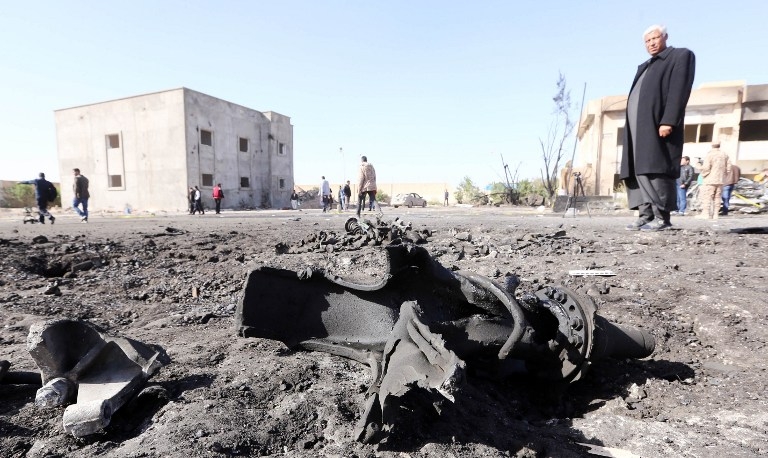UN warned of expanding Islamic State influence in Libya

The Islamic State (IS) group has significantly expanded its control over Libya, fuelling demand by the country's warring parties for more arms to confront the threat, UN experts have told the Security Council.
IS has successfully recruited young men from local tribes, offering them protection and benefits but it has also enlisted military officers who formerly served Muammar Gaddafi, said the report by the panel of experts who report to a UN sanctions committee.
IS militants have cemented their hold on the coastal city of Sirte, wiping out opposition and the group is "currently the most significant political and military actor in the region," said the report which was submitted to the council on Wednesday.
The group has also made inroads in Tripoli and in the western city of Sabrata, boosting its presence through local recruitment and foreign fighters who transit through Turkey and Tunisia.
Militants from sub-Saharan Africa have travelled through Sudan to join IS ranks in Sirte and Benghazi, the report said, confirming fears that the Libyan IS branch is seeking to draw recruits from other parts of the continent.
"The political and security vacuum has been further exploited by Islamic State in Iraq and the Levant, which has significantly expanded its control over territory," the report said.
The report did not provide estimates of the number of IS fighters in Libya.
Libya was thrown into turmoil after a NATO-backed uprising that toppled longtime leader Gaddafi in 2011.
The country has been under an arms embargo since then, but the report cited a recent transfer of MIG-21F jets to Tobruk, where the internationally recognised government is based.
The jets "appear to be consistent with those owned by Egypt," the experts said. Cairo, however, told the panel its information on the transfer was "incorrect."
The panel is continuing to investigate claims that Turkey, the United Arab Emirates and Sudan have also violated the embargo.
"The continuation of armed clashes and the expansion of ISIL have led to an increase in demand for military materiel," said the report, which cited a "revival of external support" for the various factions. ISIL is an alternative acronym for IS.
The experts also said they were concerned about remaining stocks of chemical weapons in Libya "which must be secured and destroyed as a matter of urgency".
"The rise of ISIL in Libya is likely to increase the level of international and regional interference, which could provoke further polarisation if not coordinated," said the report.
"In anticipation, ISIL has been spreading a nationalistic narrative, portraying itself as the most important bulwark against foreign intervention."
While IS does not generate revenue from oil in Libya, its attacks on oil installations seriously threaten the country's economic stability.
The report described IS as "the most significant perpetrator of mass killings in Libya" with bomb attacks and executions that have killed scores at a time.
With Libya in chaos, the United Nations has been struggling to set up a unity government that would be able to confront the threat from IS.
Libya has had rival parliaments and governments since 2014, after a militia alliance overran Tripoli and forced the internationally recognised administration to flee to the eastern city of Tobruk.
Stay informed with MEE's newsletters
Sign up to get the latest alerts, insights and analysis, starting with Turkey Unpacked
Middle East Eye delivers independent and unrivalled coverage and analysis of the Middle East, North Africa and beyond. To learn more about republishing this content and the associated fees, please fill out this form. More about MEE can be found here.




